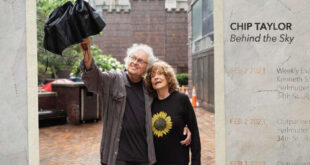
Salon/Sanctuary Concerts presented the third in its “Bernini in Paris” series of concerts Thursday night at the Abigail Adams Smith Auditorium. The hall, in a historic New York City house owned by the Colonial Dames of America, has surprisingly good acoustics for a space more often used for weddings and such. It proved near-ideal for a group – what’s known as a consort – of viols.
LeStrange Viols are six superb musicians who play the treble, tenor, and bass members of the viola da gamba (or viol) family. Many of the best-known viol composers were French (Marais, Forqueray, Sainte-Colombe), but music for the “consort of viols” is more closely associated with England, so this program of music from France included some surprising adaptations, like a 14th-century piece (“Rex Carole”) for voices. In transcription, its polyphony sounded warmed up and slightly, strangely modern.
Deeply drawn melodic passages on the bass viol made an early chanson by Claudin de Sermisy a treat. A solemn, regal pavane written for the 1615 marriage of King Louis XIII set the table for an impressive transcription of an orchestral suite by Jean-Baptiste Lully, one of the best-known composers of 17th-century France – but who was in fact Italian, which only reinforces the cross-cultural internationalism of the baroque music scene well before George Frideric Handel earned his resting place in Westminster Abbey’s Poet’s Corner and Leopold Mozart showed off his whiz-kid son and daughter Nannerl in Prague and Paris.
The Lully suite featured an airy Prelude played as softly as I’ve ever heard bowed viols, and a stately Chaconne delivered with a touch of leaned-in romanticism. After a well-deserved intermission the group switched to a lineup with three treble viols for the flowing counterpoint of Louis Constantin’s “La Pacifique” and a four-movement concert piece by Charpentier that featured two sunshiny Gigues.
Speedy ensemble work made a Chaconne by Englishman John Blow in the 17th-century French style (internationalism again) sound easy. The anonymous “La Serenade du Sr. Belleville,” with some of the program’s most beautiful moments, was a sweet mystery. It preceded another surprising transcription: the three movements of Rameau’s Concert Cinquième (Concert 5), written for harpsichord, viol, and violin or flute. Played instead on three treble, one tenor, and two bass viols, this relatively familiar work sounded rewardingly full and proved a highlight of the evening, with lightning-fast scales in the “La Cupis” movement and the thoughtful pizzicato bass of “La Marais.” (Appropriately for a concert by LeStrange Viols, the latter, along with “La Forqueray,” were named in tribute to great masters of the viol. I don’t know who “La Cupis” was. Any Rameau scholars out there?)
The program closed with another late piece (late in the context of the viola da gamba), Couperin’s “Les Barricades Mysterieuses,” written for harpsichord. From a light pizzicato start the sound built slowly into dark clouds of emotional intensity.

—
There was plenty of same, from voices as well as instruments, at the first concert in the “Bernini in Paris” series, recordings from which Salon/Sanctuary gave me the opportunity to hear. The program titled “At the Pleasure of Mazarin” highlighted the Baroque musical style of the first half of the 17th century known as stylus fantasticus. Characterized by freely changing harmonic progressions and tonal colors, this flowing music well illustrated texts like that of Luigi Rossi’s “Gelosia” (“Jealousy”): “Fury of my soul! Cease to torment me! No more! No more!…Love is stronger than your icy chill.” Or consider the mere titles of Rossi’s “M’uccidete begl’occhi” (“Beautiful eyes, you murder me”) or Bellerofonte Castaldi’s “Capriccio Hermafrodito.”
As harpsichordist Kenneth Hamrick wrote in the program notes, “Most valued was a musical experience that inspired its keen listeners along a kaleidoscopic-phantasmagoric sensory, emotional journey: aural, visceral and psychologic.” The concert was a fine opportunity to sample this music in historical context, something Salon/Sanctuary does exceedingly well.
George Martin would have approved.
 Blogcritics The critical lens on today's culture & entertainment
Blogcritics The critical lens on today's culture & entertainment



